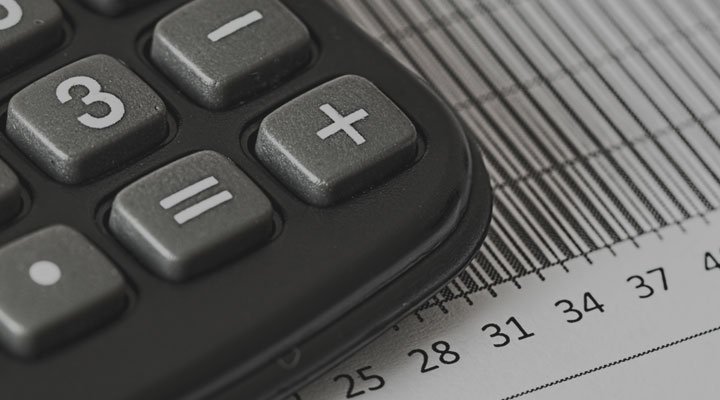Everything you need to know about a fixed rate ISA
With interest rates having steadily risen in the past few years, you may want to consider locking away your savings for a set period to secure a higher rate. A fixed rate cash ISA could enable you to do this – plus, any interest you earn is tax-free.
In this article, you’ll learn more about fixed rate ISAs and how they work. We also weigh up the pros and cons and consider whether it’s better to open a fixed rate ISA or a fixed rate bond.
Of course, the most suitable option will depend on your savings goals and individual circumstances, so it’s worth comparing a range of accounts to find the best solution for your needs.
Benefit from higher returns: By locking away your savings in a fixed rate cash ISA, you can secure higher interest than other cash ISAs
Tax-free savings: Fixed rate ISAs offer tax-free savings for terms of between one and five years, but you are limited to an annual deposit of £20,000 across multiple ISAs
Fixed rate ISA rules: Keep in mind that fixed rate ISAs limit your access until the end of the agreed term, potentially resulting in penalties for early withdrawals
What is a fixed rate ISA?
A fixed rate ISA is a tax-free savings account that allows you to lock away a lump sum of money for a set period in exchange for a competitive interest rate. The interest rate is agreed in advance and remains the same for the duration of the term. Terms normally range from one year to five years, with longer terms typically offering the highest fixed ISA rates. In this sense, fixed rate ISAs are very similar to fixed rate bonds.
You can currently pay a maximum of £20,000 into a fixed rate ISA within a single tax year. While it’s possible to own multiple ISAs, the £20,000 limit applies collectively across all your ISA accounts. It’s also worth noting that interest from a fixed rate ISA – or any other type of ISA – does not count towards your personal savings allowance (PSA). The PSA lets you earn a certain amount of interest on your savings without paying tax. Basic rate taxpayers can currently earn up to £1,000 in tax-free interest, while higher rate taxpayers can receive up to £500 in interest. Additional rate taxpayers do not receive a PSA.
To open a fixed rate ISA, you must be aged 16 or over and resident in the UK.
Depositing into a fixed rate ISA
To open a fixed rate cash ISA, some providers require you to make a minimum deposit, ranging from £1 to £1,000. Once you’ve opened the fixed rate ISA, you’ll have up to 14 days to deposit your lump sum. Some fixed rate ISAs won’t allow you to make additional top-up payments during the term, so keep this in mind when choosing an account.
When making your deposit, remember to take account of any money you’ve already paid into other ISAs during that tax year, as you can’t exceed the maximum allowance of £20,000. That said, it may be possible to transfer funds from one ISA into your new fixed rate ISA without this counting towards the annual limit. Not all providers accept transfers from existing ISAs, so it’s important to check this before opening your account.
While fixed rate ISAs typically offer better interest rates than other cash ISAs, the compromise is that you can’t access your money until the end of the agreed term. If you do need to withdraw funds before the account matures, you are likely to incur a significant penalty.
How to choose a fixed rate ISA
Fixed rate ISAs are categorised by the length of the term they carry. Typical terms are one year, two years, three years, four years, and five years. As a rule of thumb, the longer the term, the better the fixed ISA interest rates. The length of time you choose to invest your money depends on your financial goals and whether there’s a chance you’ll need to access your savings before the fixed ISA account matures. Whatever you decide, it’s a good idea to review your budget so you know exactly how much you can afford to lock away and for how long.
You may also want to factor in potential interest rate changes when deciding on a fixed term ISA. Interest rates are currently relatively high, so locking in your money at a competitive rate could prove a good decision right now. Of course, interest rates may continue to rise or begin to fall again in the future, so it’s important to take this into consideration when opening a long-term savings account.
It’s worth remembering that fixed rate ISAs aren’t the only type of ISA available. If you’re looking for a flexible way to save, an instant access cash ISA may be more suitable. Bear in mind, however, that an easy access ISA offers variable rates, and the return on your investment will be lower.
Other ISA options include a stocks and shares ISA, innovative finance ISA and a lifetime ISA. Saving for your child’s future? In this case, you might want to consider a junior ISA.
Save smarter with the Raisin UK newsletter!
What’s in it for me?
- Receive exclusive updates on market-leading rates
- Ensure you never miss a bonus offer
- Keep your finger on the pulse with the latest financial news
How many fixed rate ISAs can I have?
You can have multiple fixed rate ISAs, but you can only open one of each type of ISA in any given tax year (6th April to 5th April). So if you opened a fixed rate ISA in July 2025, you won’t be able to open another one until 6th April 2026.
You can, however, open different types of ISA, for example, a cash ISA and a stocks and shares ISA, in the same tax year, providing you don’t exceed the overall ISA allowance (£20,000 in 2025/26).
Pros and cons of a fixed rate ISA
As with any savings account, a fixed rate cash ISA has its pros and cons
Pros
- You won’t be taxed on the interest you earn
- You’ll receive a guaranteed rate of interest for the duration of the term
- The interest rates are typically higher than those available on other cash ISAs and other easy access savings accounts
- They’re free to open and you can have multiple accounts
Cons
- You may incur a sizeable penalty if you need to access your money before the end of the agreed term
- Annual deposits are capped at £20,000
- You won’t benefit if interest rates rise while you’re locked into a fixed rate ISA
If you need help to find the best fixed rate ISA, or you’re unsure whether it’s the most suitable option, speak to a financial adviser.
Should I open a fixed rate ISA?
Whether a fixed rate ISA is right for you depends on your savings goals and your circumstances.
A fixed rate ISA may be suitable for saving a lump sum of money that you know you won’t need to touch during the term. For example, if you’re saving for a wedding that’s booked for three years’ time, you might want to lock away the money until you know you’ll need it. However, if you’re saving for a rainy day and there’s a chance you need to access the funds sooner, you may be better suited to an easy access ISA or an easy access savings account.
You should also factor in your financial situation. If you have substantial savings and your interest exceeds the personal savings allowance (PSA), a fixed rate ISA can provide you with a tax-free way to grow your savings. However, if the PSA means tax isn’t likely to be an issue, other non-ISA accounts like fixed rate bonds may be more beneficial.
Suitable for:
- Ideal for known future expenses, like weddings, with funds locked away until a set date
- Savers looking for the predictability of an interest rate that won’t change
- High savers, who can benefit from tax-free growth if interest exceeds the PSA
Not suitable for:
- Savers who might need quick access to funds; penalties apply for early withdrawals
- Savers with uncertain financial situations or those who want to make regular deposits
- If PSA covers interest, consider non-ISA options for better returns without fixed terms
If you do decide a fixed rate ISA is suitable, be sure to research the market to find the best fixed rate ISA deals available.
Fixed rate ISAs vs. fixed rate bonds
Fixed rate bonds operate similarly to fixed rate ISAs, offering a guaranteed rate of return if you lock your money away for a set period. The main difference is that the interest earned in a fixed rate ISA is tax-free, regardless of your income. However, you might be able to secure a more competitive interest rate with a fixed rate bond.
If you have significant savings, you might want to open both a fixed rate ISA and a fixed rate bond, particularly if you’ve already reached the annual ISA limit. Unlike fixed rate ISAs, there’s no £20,000 cap on deposits into a fixed rate bond. In some cases, the maximum deposit can be as much as £2,000,000.
If you are exploring ISAs more generally, you might consider whether it’s better to open an ISA or a fixed rate bond. Whichever type of savings account you choose, it’s a good idea to compare accounts from a range of providers to ensure you are getting the best deal. To do so, it can help to refer to the AER (Annual Equivalent Rate), which shows how much you’d earn after depositing cash into an account and leaving it there for a year. The AER makes it easy to compare annual and monthly interest fixed rate ISAs, and calculate your expected returns.
Earn high interest with Raisin UK
While we don’t currently offer ISAs, you’ll find a great range of fixed rate bonds available on the Raisin UK marketplace. Simply register for a Raisin UK Account to apply online for fixed rate bonds with competitive interest rates from a range of UK partner banks and building societies. It only takes a few clicks and it’s completely free.
You can learn more about how to apply by reading our guide to opening a savings account.
Fixed rate ISA FAQs
Can you add money to a fixed rate ISA?
Once you’ve made your initial deposit, you usually can’t top up a fixed interest cash ISA. Unlike some other savings accounts where you can add funds bit by bit, here you get a 14-day window after opening the account to deposit as much as you want, up to the £20,000 ISA limit. Keep in mind that the specifics may vary based on the account’s terms and conditions, so it’s a good idea to double-check this before signing up.
Can you withdraw money from a fixed rate ISA?
In most cases, you are not allowed to make withdrawals from a fixed rate ISA before the end of the agreed term. If you choose to withdraw or close the account early, there’s usually a fee involved, typically equivalent to a certain number of days’ worth of interest.
Can you transfer a fixed rate ISA before maturity?
Transferring a fixed rate ISA before the end of the term can be more challenging compared to other types of ISAs. Fixed term cash ISAs are designed to lock in your money for a specified period, and early transfers may result in penalties or the loss of interest.
However, some ISA providers may offer options for transferring fixed rate ISAs under specific circumstances. It’s important to carefully review the terms and conditions of your particular fixed cash ISA and contact your ISA provider to inquire about any transfer options.
What happens at the end of a fixed rate ISA?
At the end of a fixed rate ISA term, you have options. Your ISA matures, giving you access to your funds, and you can then choose to withdraw, transfer, reinvest, or explore other savings accounts. The specific details will depend on the terms and conditions of your ISA provider.
Is my money safe in a fixed rate ISA?
The funds you deposit in a fixed rate ISA in the UK are protected up to £85,000 per person, per bank, by the Financial Services Compensation Scheme (FSCS). This protection ensures that if the ISA provider faces financial difficulties, your eligible deposits are safeguarded. Fixed rate ISAs are generally considered a secure savings option, avoiding the risks associated with a stocks and shares ISA, for example.


